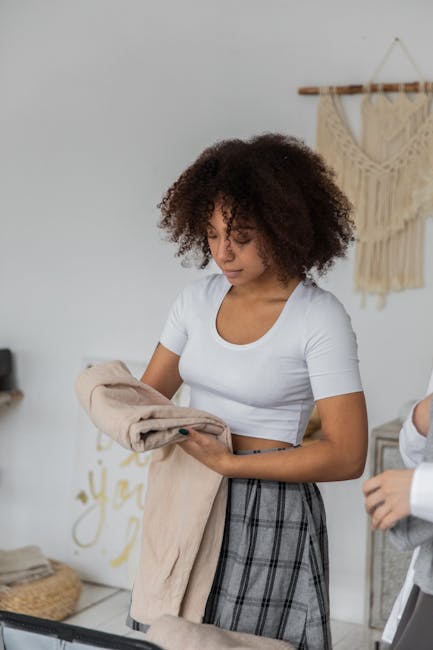Does Solar Put A Lien On Your Home?
As more homeowners consider solar energy as a viable option for reducing energy costs and promoting sustainability, a common question arises: “Does solar put a lien on your home?” This article will explore the relationship between solar energy systems and property liens, providing clarity on how solar installations can affect your home’s financial standing. We’ll also discuss the implications of solar financing options, the benefits of solar energy, and what homeowners should know before making the switch.
Understanding Liens and Their Implications
Before diving into the specifics of solar energy, it’s essential to understand what a lien is. A lien is a legal claim against a property, typically used as security for a debt. If the debt is not paid, the lienholder may have the right to take possession of the property. Here are some key points about liens:
- Types of Liens: There are various types of liens, including mortgage liens, tax liens, and mechanic’s liens.
- Impact on Property Sales: Liens can complicate the sale of a property, as they must be resolved before the sale can proceed.
- Credit Implications: Having a lien on your property can negatively affect your credit score.
Solar Financing Options
When considering solar energy, homeowners typically have several financing options, each with different implications for property liens:
- Cash Purchase: Buying a solar system outright means no lien is placed on your home. You own the system and can enjoy the benefits without any debt obligations.
- Solar Loans: If you finance your solar installation through a loan, a lien may be placed on your home as collateral. This means the lender has a claim to your property until the loan is paid off.
- Leases and Power Purchase Agreements (PPAs): In these arrangements, you do not own the solar system. Instead, a third party owns it, and you pay for the energy produced. Generally, these agreements do not place a lien on your home, but they may affect your property’s sale.
Does Solar Put a Lien on Your Home?
The short answer is: it depends on how you finance your solar installation. Here’s a breakdown:
- Cash Purchase: No lien is placed on your home. You own the system outright.
- Solar Loans: A lien may be placed on your home as collateral for the loan. This means if you default on the loan, the lender could potentially claim your property.
- Leases and PPAs: Typically, these do not create a lien on your home, but they may have other implications for property ownership and sale.
Benefits of Solar Energy
Despite the potential for liens, many homeowners find that the benefits of solar energy far outweigh the drawbacks. Here are some advantages:
- Cost Savings: Solar energy can significantly reduce your electricity bills, leading to long-term savings.
- Increased Home Value: Homes with solar energy systems often have higher property values and can sell faster than those without.
- Environmental Impact: Solar energy is a clean, renewable resource that reduces your carbon footprint.
- Energy Independence: Generating your own electricity can protect you from rising energy costs and grid outages.
What Homeowners Should Know
Before installing solar panels, homeowners should consider several factors to ensure a smooth process:
- Research Financing Options: Understand the differences between cash purchases, loans, leases, and PPAs to choose the best option for your financial situation.
- Check Local Regulations: Some states have specific laws regarding solar installations and liens. Familiarize yourself with local regulations to avoid surprises.
- Consult with Professionals: Speak with solar energy experts and financial advisors to understand the implications of your financing choice.
- Review Your Home’s Value: Consider how a solar installation might affect your home’s value and resale potential.
Potential Risks and Considerations
While solar energy offers many benefits, there are also risks and considerations to keep in mind:
- Loan Default Risks: If you finance your solar system with a loan, failing to make payments could lead to a lien on your home.
- Impact on Home Sales: If you have a solar lease or PPA, potential buyers may be hesitant to take on the agreement, which could complicate the sale of your home.
- Insurance Considerations: Ensure your homeowner’s insurance covers solar panels, as they can be damaged by storms or other events.
Conclusion
In summary, whether solar energy puts a lien on your home depends largely on how you choose to finance your solar installation. Cash purchases do not create liens, while loans may result in a lien as collateral. Leases and PPAs typically do not place liens on your property but can affect its sale. Understanding these factors is crucial for homeowners considering solar energy.
As you weigh the benefits of solar energy against the potential risks, remember that the long-term savings and environmental benefits can make solar a worthwhile investment. Always consult with professionals and do thorough research to make informed decisions that align with your financial goals and homeownership plans.
FAQs
1. Can I install solar panels if I have an existing lien on my home?
Yes, you can still install solar panels, but it may complicate financing options. Lenders may be hesitant to provide loans if there are existing liens.
2. How can I avoid liens when financing solar?
Consider paying for your solar system in cash or exploring lease options that do not involve taking out a loan.
3. What happens to my solar panels if I sell my home?
If you own the panels outright, you can sell them with the home. If you have a lease or PPA, you may need to transfer the agreement to the new owner or pay off the remaining balance.
4. Are there tax incentives for installing solar panels?
Yes, many states offer tax credits and incentives for solar installations, which can help offset the initial costs.




